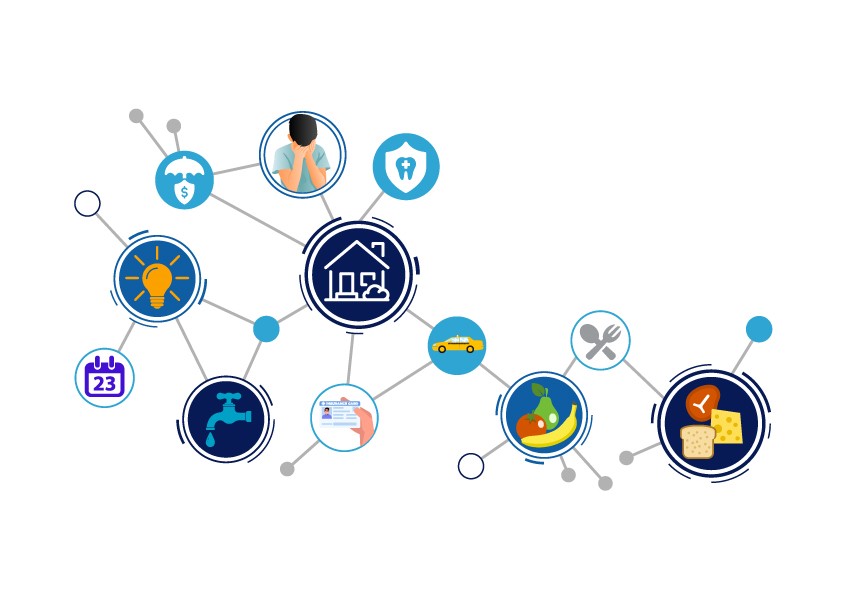
Health is connected to where we live, work, and play. Your clinic can help with factors in your life that can affect your health.
A new national program helps healthcare providers identify non-medical needs – and offer resources to patients and their families to meet those needs, for better health overall.
The program focuses on five “social drivers of health”:
- Food security
- Housing stability
- Transportation needs
- Utilities access (electric, gas, water)
- Interpersonal safety (such as exposure to violence, social isolation)
The process starts with a “social history” questionnaire during a clinic appointment (or hospital stay). Questions are designed to help your provider understand your environment and living situation, so we can connect you to resources that might benefit you.
They seem like personal questions that go beyond medical care. Your answers are confidential; they’re part of your medical record, between you and your doctor. You don’t have to answer them. If you choose to answer them, we’ll help you in any way you tell us about challenges where we can help.
We can connect people with resources for help with:
- Housing
- Food support
- Medical insurance
- Mental health care
- Substance treatment
- Dental care
- Transportation
- Emergency financial assistance
- Utilities
- Employment programs
- Wellness education
See a full list of Community Resources here.
The program is led by Centers for Medicare and Medicaid (CMS), the federal government division that licenses hospitals and clinics. The goal is to connect patients with local organizations that can help individuals, families, or neighborhoods. On a broad scale, [community leaders/CMS] can spot trends to identify areas of need that the community can address.
Hospital patients are asked to complete the questionnaire during their stay. Clinic patients are given the questionnaire once a year, usually during an annual physical, wellness visit, or medication check.
